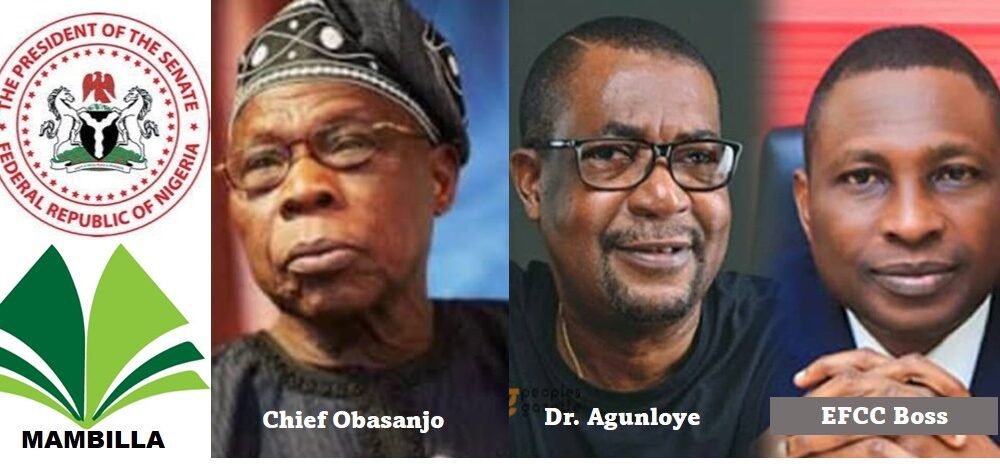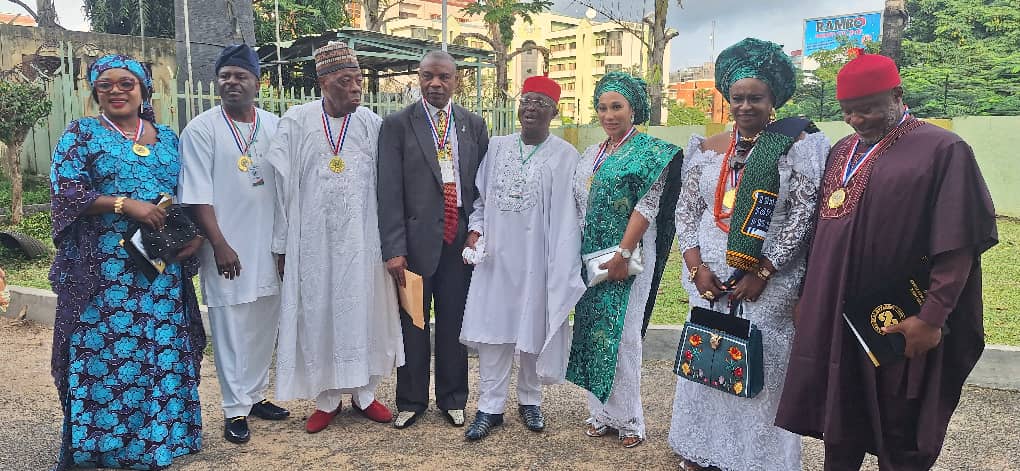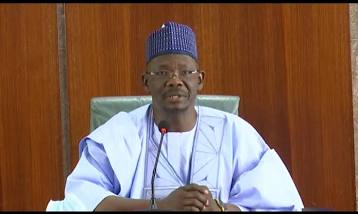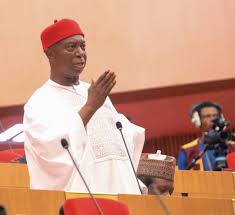***The Mambilla trial is based on criminalisation conspiracy
I am an avid watcher of the Agunloye trial in Nigeria. It is a trial based on criminalisation conspiracy. I know other watchers abound in Nigeria, and many are scattered over Africa, Europe, the Americas and Asia. However, this time, I will not be writing about the Agunloye trial but about something which challenges our sensibilities and senses. It is about the many contracts, crimes, and criminalisation of Mambilla. This writing was primed by the recent steps taken at the National Assembly of Nigeria which seeks to find the way out of the Mambilla stalemate but has inadvertently opened the lid on the multiple contracts and crimes surrounding Mambilla, laying bare the criminalisation tool, initiated by former the administration of former President Buhari. This tool is being employed by the Federal Government of Nigeria with a view to evade liabilities at the International Arbitration Panel in France. The Senate of the 10th National Assembly has courageously elected to face the Mambilla deadlock frontally towards producing electricity for Nigeria and its economy and peoples. This is in great contrast to the Buhari Agenda of denials and criminalisation which has been producing darkness.
Interventions
On Thursday, 4 July 2024, the Nigerian Senate moved towards halting the unending crisis associated with the Mambilla Hydroelectric Power Project. The resolution of the Senate followed the motion by the manly Senator Harun Manu. The Upper Chamber also decided to probe the entire Mambilla project transactions from 1999 to 2024 and in particular, the procurement contract awarded by the then Minister of Power, Alhaji Babatunde Raji Fashola in 2017 without cancelling the Mambilla contract awarded to Sunrise Power Company Ltd. by the Jonathan administration in 2012. It was this 2017 contract that caused the conflicts which led to the pending International Arbitration in France.

Interventions like memoranda from by the then Chief of Staff, Alh Abba Kyari and letters from the then Attorney General of the Federation, Alh Abubakar Malami to the then Minister of Power, Alh. Raji Fashola did not resolve the 2017 conflict. The interventions of the President of China, His Excellency Xi JIngping who sent a special Envoy to President Buhari, and that of the Senate of the 9th National Assembly in 2021 also failed. After all the interventions to resolve the causal conflicts failed one after the other, Nigeria became faced with claims and damages at the Arbitration in France.
Contracts
There have been many awards of contracts and re-awards without cancellations. The 2017 award, now under Senate probe, is not the first Mambilla project to be re-awarded arbitrarily. In 2007, President Obasanjo, who had earlier awarded the Mambilla project as a Build, Operate and Transfer (BOT) through his Minister of Power, Dr. Agunloye, in May 2003, re-awarded this as a procurement contract in May 2007 without cancelling the earlier contract. This led to litigation tussles which were later resolved by the former President Musa Yar’Adua who cancelled the Obasanjo’s May 2007 contract and re-awarded the May 2003 contract back to Sunrise Power. Former President Goodluck Jonathan awarded the Mambilla contract in August 2012 but in November 2017, the Minister of Power, Alh. Raji Fashola re-awarded the Mambilla contract to yet another company without cancelling the 2012 contract.
Crimes
The interventions have revealed the many crimes surrounding the Mambilla project. In 2007, the House of Representatives’ Committee headed by Hon. Ndudi Godwin Elumelu probed power projects from 1999 to 2007. The Committee recommended that the former President Olusegun Obasanjo should be called to account for the $16 billion mishandled in the power sector. The report indicted all the Ministers of Power between 1999 to 2007 except Chief Bola Ige and Dr. Olu Agunloye. The Report in particular, described Sen. Liyel Imoke, Minister of Power (2003 – 2007), as one with disregard for Due Process and liable for over-costing of projects and subverting the Electric Power Sector Reform Act 2005 processes.
On 9 May 2008, the House of Representatives invited former President Obasanjo who did not honour the invitation. Instead, he wrote saying “…these particulars ought to be forwarded and adequate time given… to prepare before appearing before you… since I have no access to government data and information…” In September 2015, Hon Godwin Elumelu referred to yet another probe on the power sector from 1999-2015 on Channels TV. He also said that only $13 billion of the $16 billion excess crude oil funds could be traced to jobs, some of which were not done or completed. In November 2016, worried by ever gloomy power generation, the Senate announced a public hearing on the declining power generation and a probe on the N213 billion spent from the CBN funds.
On 23 May 2018, President Muhammadu Buhari became so disturbed by the abysmal performance in the power sector that he publicly called out the former President Obasanjo “for spending $16 billion on power projects with no results”. On 3 June 2020, the Senate, again, announced it was probing over N1.8 trillion Government’s funding in the power sector. Again, on 25 October 2023, the House of Representatives announced that it was investigating the investments in the power sector since 2013 “amounting to trillions of Naira”.
Criminalisation
As at now, the Mambilla Project is entangled in an arbitration in France because of series of awards and re-awards and multiple breaches and the Panel is to determine whether Nigeria is liable for $2.3 billion damages. To avert liabilities at the arbitration, FGN devised the “criminalisation strategy” to absolve itself of irregularities committed over Mambilla. Under this strategy, FGN pleaded that all the claims by Sunrise are fraudulent and all Government officials that dealt with Sunrise Power on the Mambilla project, including Ministers and Attorneys General, were corrupt and acted without authority. FGN also pleaded that Nigerian Presidents did not grant permissions for Mambilla contracts or negotiations.
Accordingly, the former Presidents started to make denials. Chief Obasanjo said he did not know that his Minister awarded a BOT contract in May 2003 until August 2023, over 20 years after. Then former President Buhari said in December 2023 that he was not aware that his four Ministers (Finance, Power, Agriculture and Justice) were engaged in settlement agreements with Sunrise. The former President Yar’Adua had already made his statement with the cancellation of President Obasanjo’s $1.4 billion Mambilla subcontract before he died in 2010. Former President Jonathan who awarded the 2012 Mambilla contract and former Vice President, Atiku Abubakar who midwifed the 2003 Mambilla contract are still alive but neither has spoken on the Mambilla project in the last few years.
In order to back its statement of defence at the arbitration, FGN proceeded to “criminalise” all the activities of government officials involved with the Mambilla project from 2000 to 2022 except those who served under the APC Government. It was this criminalisation dragnet that caught Dr Agunloye, the minister who awarded the Mambilla contract as a Build, Operate and Transfer (BOT) in May 2003. Under the BOT scheme, FGN was not to pay and has not paid any amount to Sunrise Power till date. Sunrise was to provide funds to construct the Mambilla hydroelectric dam and to operate and maintain it for 30 – 35 years to recoup its investments. Armed with the criminalisation strategy, EFCC suddenly declared Agunloye wanted, cast him into custody and arraigned him before a court in a remote area. EFCC then charged Agunloye for (a) awarding a “$6 billion contract without cash backing”, (b) disobeying a verbal order of the President Obasanjo, (c) forging his own letter signed by him as a sitting Minister and (d) receiving “retroactive” bribe of N3.6 million in August 2019 for the “$6 billion contract” awarded in 2003, over 16 years. With this, EFCC is angling for a swift conviction for the Arbitration.
The criminalisation strategy was devised by prominent lawyers who served in the Buhari Cabinet. It is being dogmatically executed by the EFCC which believes that once the 2003 BOT contract could be criminalised, it would present a case of “illegality” in the foundation of the Mambilla project and FGN would be free of the burdens of mismanagements. This has ignored the real foundation for the project which is the July 2001 Agreement signed in China between Sunrise’s Partners and FGN. It was midwifed by Alhaji Atiku Abubakar, then Vice President of Nigeria. The odious strategy did not consider that Chief Olusegun Obasanjo continued to deal with the Sunrise Partners after the 2003 BOT contract until 2007 when the former President split the project up and awarded the components as procurement contracts. In spite of the strategy, Arbitration Panel will have to contend with the fact that President Yar’Adua investigated the 2003 and 2007 Mambilla contracts; Yar’Adua cancelled the 2007 contract because of proven irregularities and upheld the 2003 contract as duly awarded. Also, the Panel will contend with several agreements that were signed before and after the 2003 contract.
National Asset
The new Senate intervention is much welcomed. It could bring a lasting solution because its focus is the actualisation of the Mambilla project as a national asset that could generate 3,050 megawatts of electricity, revitalize Ajaokuta Steel Complex, and provide benefits for local content development, creation of over 55,000 jobs, construction of resettlement homes for over 100,000 people, provision of about 3 million tons of steel, production of over 70 million tons of quarry stones, and great opportunities for cement production companies, and local vehicle production companies.
On the social justice side, this Senate intervention would bring into open the roles played by the former Presidents of Nigeria, their Ministers and their Attorneys General and those who breached the law among them should be brought to justice.
e-Signed
Dr. Anthony Ibrahim,
Truth and Justice Group.
Camberwell Green, London. UK




